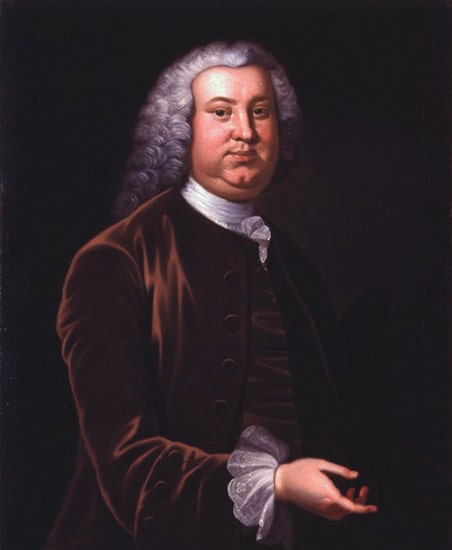Contents

Contents
Quick facts
- Born: 10 September 1721 in Williamsburg, Virginia.
- Peyton Randolph was an influential figure in early American history, serving as the first President of the Continental Congress.
- Before his involvement in the Continental Congress, he held several key positions, including Speaker of the Virginia House of Burgesses and Attorney General of Virginia.
- Randolph played a vital role in the early stages of the American Revolution, particularly in uniting the colonies against British policies.
- He was a respected leader and was chosen unanimously as President of the Continental Congress in 1774 and again in 1775.
- Despite his significant political role, Randolph’s health was fragile, and he died in on October 22 1775 in Philadelphia, Pennsylvania, shortly after being re-elected as President of Congress.
- His death was a significant loss to the revolutionary cause, as he was a unifying figure among the various colonial factions.
- He was buried in the chapel of the College of William and Mary.
Biography
Peyton Randolph, American lawyer and politician, was born at Tazewell Hall, Williamsburg, Virginia, in 1721, a son of Sir John Randolph (1693 – 1737), the king’s attorney for Virginia. He graduated at the College of William and Mary, studied law at the Inner Temple, London, and in 1748 was appointed the king’s attorney for Virginia.
Randolph wrote the Address of Remonstrance to the king in behalf of the Burgesses against the suggested stamp duties in 1764. His policy was conservative and moderate, and in May 1765 he opposed Patrick Henry’s radical Stamp Act Resolutions. In 1766 he resigned as king’s attorney and was succeeded by his brother John (1727 – 84). In 1769 he acted as moderator of the privately convened assembly which entered into the non-importation agreement; in May 1773 he became chairman of the first Virginia intercolonial Committee of Correspondence.
He presided over the provincial convention of August 1774, and was a member of the First Continental Congress, of which he was president from 5 September to 22 October 1774. He was re-elected for the Second Congress in March 1775, and on 10 May was again chosen to preside, though he left on the 24th to attend a meeting at Williamsburg of the Virginia Burgesses. He then returned to Congress, where John Hancock had meanwhile been made president. Randolph died of apoplexy in Philadelphia in 1775.
He was provincial grandmaster of the Masons of Virginia, and was an intimate friend of George Washington.

